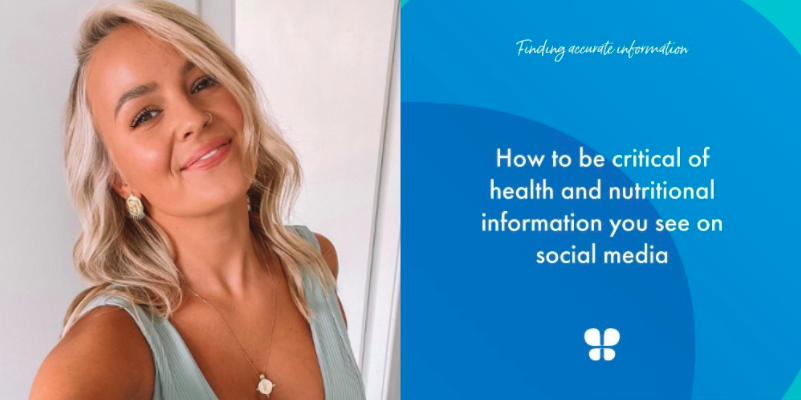
In the last few years, we’ve seen a surge in influencers sharing health, fitness and dietary advice to their large number of followers, despite having no qualifications to do so.
Pete Evans is a primary example of this and most recently ex Bachelorette Elly Miles shared a post promoting the controversial Carnivore Diet.
Taking to her Instagram Story, Elly asked her followers to shoot through any questions they have about the Carnivore Diet and she’d answer them in an upcoming IGTV.
The attached post contained a list of foods which are supposedly the “most toxic” and “least toxic.” However they’re literally all healthy, recommended foods such as broccoli, nuts, seeds, grains, legumes, onions and leafy greens.

The post, which was subsequently deleted, was met with a heap of backlash from online commenters, including one dietitian who wrote: “Dietitian here. This is absolute garbage. This message is toxic, the foods aren’t. Dietary advice should come from professionals. End of story.”
After we covered the story yesterday, the Butterfly Foundation, a charity aimed at supporting Australians with eating disorders & body image issues, was prompted to share a post to help people steer clear of harmful advice online.
“Yikes! This type of misinformation can be so damaging,” they commented on PEDESTRIAN.TV‘s Instagram post about it.
“We’ve uploaded a little guide on how people can ensure they are consuming accurate sources and questioning the health advice they see online – feel free to use!”
The post contains a bunch of questions you should ask yourself when considering health advice that you’ve seen on social media.
“Social media can be vortex of information, health advice and tips that are often posed as credible, scientific claims,” the post reads. “But not everything you see online is true or based on scientific fact.
“Here’s your regular reminder to be critical of what you see on social media, particularly when it comes to health, dieting or nutritional information posted by influencers.”
The Butterfly Foundation encourage you to ask questions like, “Does this influencer have the relevant qualifications or accreditations?” And “Have they provided a balanced view? Is the information misleading, biased or routed in personal opinion?”
On the final slide, there are a list of paths to follow to find accurate health and nutritional information.
If you need help finding a registered dietitian or other healthcare professional, contact the Butterfly Foundation’s Helpline on 1800 33 4673, via webchat or email support@butterfly.org.au



